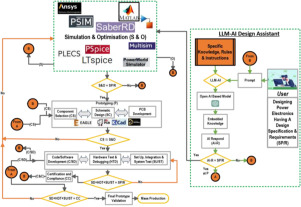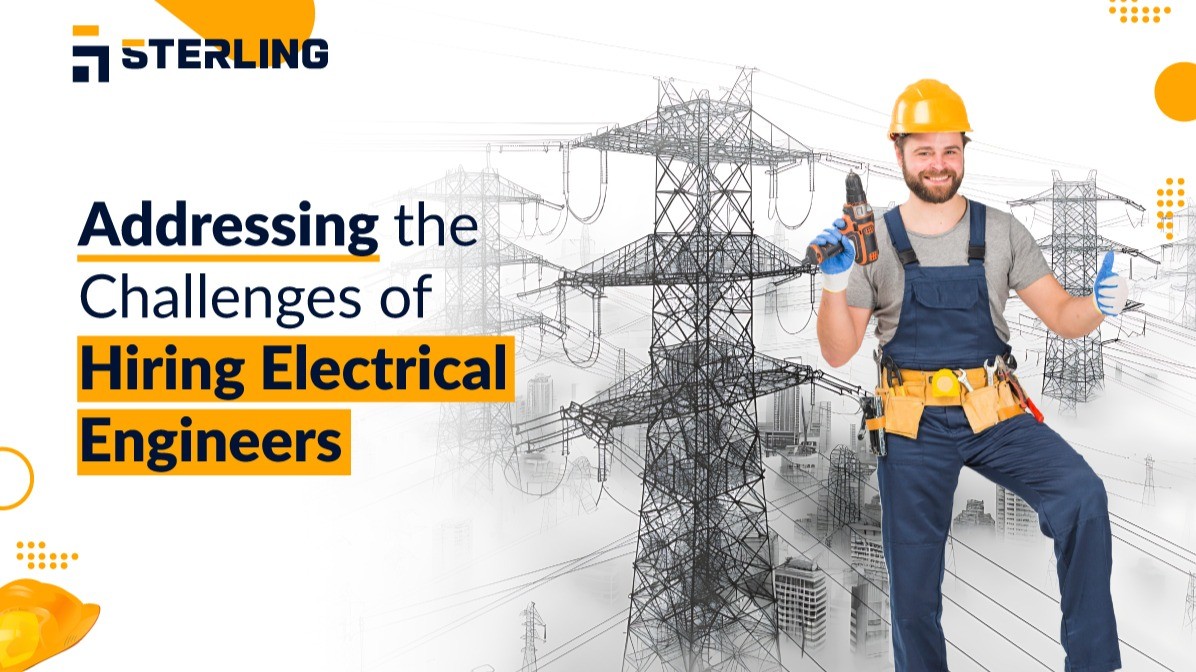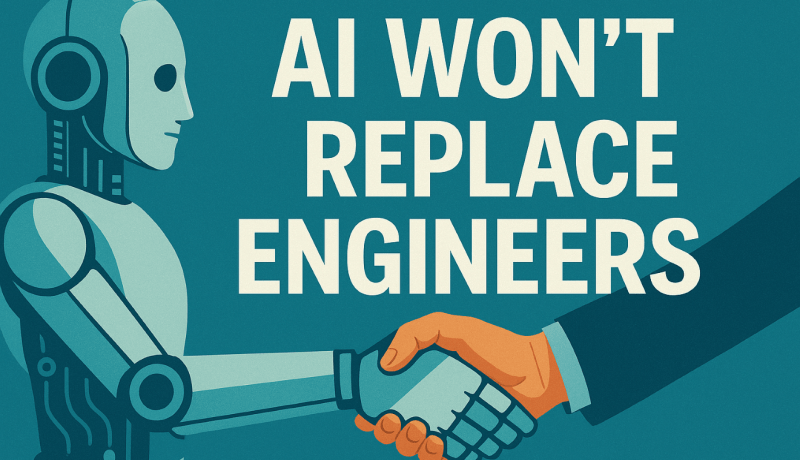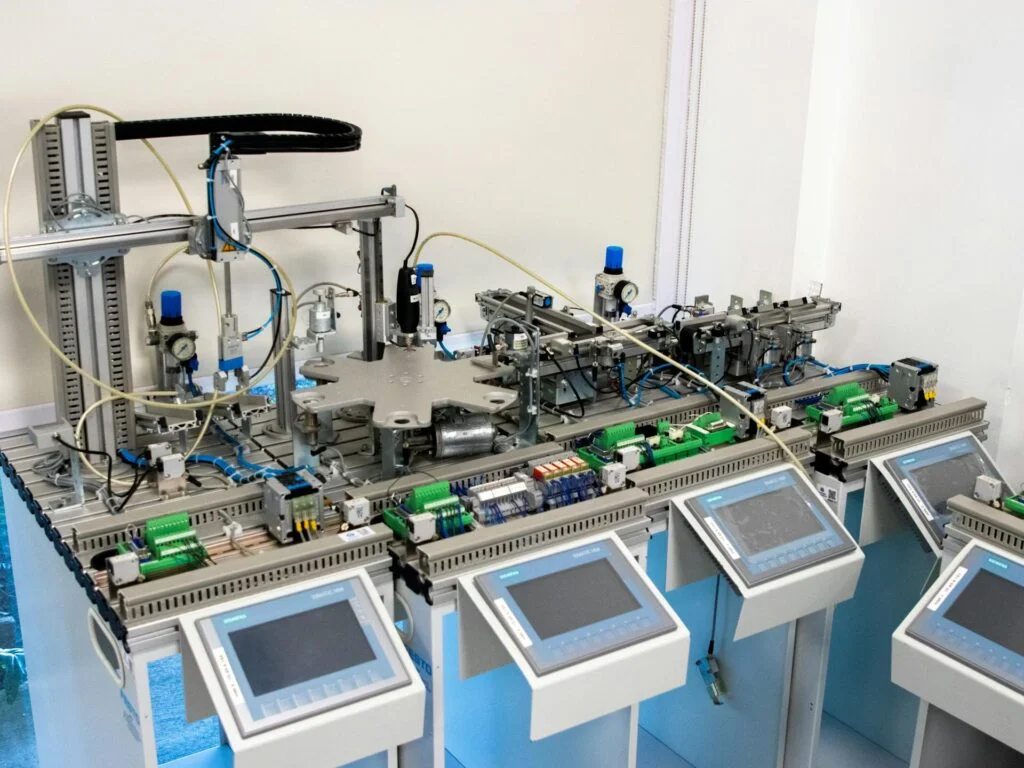In an era dominated by technological advancements, one question looms large: Will AI replace Electrical Engineers? This query sparks both curiosity and concern, as the rise of artificial intelligence promises to redefine various professional landscapes. In this post, we'll delve into this pressing issue, examining how AI is reshaping the role of electrical engineers.
We'll explore the tasks that AI is beginning to automate and highlight areas where human expertise remains irreplaceable. From enhancing design processes to predicting maintenance needs, AI is making waves, but the imaginative and collaborative aspects of engineering still rely on human touch. By the end of this post, you'll have a clearer understanding of AI's limitations and potential, and learn how electrical engineers can adapt to thrive alongside this powerful technology.
Explore this post with:
Table of contents
Electrical Engineers: AI's Partner or Replacement?
The sentiment among electrical engineers regarding AI varies significantly. Many see AI as a collaborative tool that enhances their productivity rather than a threat to their jobs. According to a ByteSnap Design survey, 63% of respondents believe AI speeds up design and development cycles, freeing engineers to tackle more complex and creative tasks.

Credits: The Engineer
However, some engineers express concern over job security, fearing that automation might encroach on their roles. A Deloitte study highlights that while AI can handle repetitive tasks, the nuanced understanding of system architecture and problem-solving skills remain irreplaceable. Overall, most engineers believe that AI will change their work landscape but are optimistic about emerging opportunities.
For many, the integration of AI is an invitation to evolve their skills. A report from IEEE suggests that engineers view AI as a tool for innovation, allowing them to focus on higher-level tasks while benefiting from AI's efficiency. This mixed outlook reflects a balance of caution and excitement about the future.
What parts of Electrical Engineer jobs is AI replacing?
AI is increasingly automating various tasks in electrical engineering, particularly in the design phase. For instance, large language models (LLMs) can streamline power electronics design, reducing both time and complexity by automating tasks like parameter optimization and design validation through simulations. According to a Gartner report, AI technology can enhance system performance and control strategies, allowing engineers to shift their focus to more complex issues.

Credits: Elsevier
Moreover, AI can play a significant role in routine maintenance and diagnostics. Systems equipped with AI can predict failures and suggest repairs, which limits the need for manual troubleshooting. A study by IEEE highlights that while AI can enhance efficiency in these areas, it is unlikely to replace core aspects of engineering such as creativity, ethical decision-making, and interpersonal collaboration, which remain uniquely human attributes.
What Parts of Electrical Engineer AI Cannot Replace
While AI is reshaping many industries, there are essential components of an electrical engineer's job that remain beyond its reach. According to a LinkedIn article by Mohammed Younes, electrical engineers are in greater demand due to the growing reliance on AI technologies. Their expertise is crucial for designing and maintaining complex systems that AI alone cannot manage.

Credits: LinkedIn
A key aspect where AI falls short is human judgment. As highlighted by the IEEE, decisions involving safety and ethical considerations require the intuition and insight that only humans can provide. Electrical engineers also excel in creative problem-solving, a domain where AI's capabilities are limited. They bring innovative solutions to unique challenges, showcasing a blend of skills that AI cannot replicate.
Additionally, the collaborative nature of engineering projects demands interpersonal skills and adaptability. As discussed in another IEEE article, working with teams, clients, and stakeholders involves communication and relationship-building—traits inherently human. While AI is a powerful tool, it enhances rather than replaces the human elements that make electrical engineers irreplaceable.
How Electrical Engineers Can Adapt to AI
As artificial intelligence transforms the field of electrical engineering, the role of engineers is evolving. Engineers must now understand how to integrate AI tools and machine learning into their designs. Familiarizing yourself with programming languages like Python and frameworks such as TensorFlow can significantly enhance your problem-solving capabilities. According to LinkedIn's insights, embracing these technologies can open up new career opportunities.
To effectively adapt, engineers should pursue continuous education and engage in hands-on projects that incorporate AI. Courses focusing on machine learning, data analysis, and IoT integration are beneficial. As highlighted by Quora discussions, understanding signal processing and embedded systems can also lead to roles in robotics and IoT solutions. Staying informed about industry trends and collaborating with interdisciplinary teams will position you as a valuable asset in this rapidly changing landscape.
Electrical Engineer hiring trends in the US
The job market for electrical engineers in the US is buzzing with opportunities. According to the Bureau of Labor Statistics, employment is expected to grow by 7% from 2024 to 2034, which is faster than the average for all occupations. Around 17,500 openings are projected each year, largely driven by retirements and workforce transitions.

Credits: LinkedIn
The demand for electrical engineers is particularly pronounced in sectors like renewable energy and semiconductors. For instance, the semiconductor industry anticipates needing an additional 50,000 engineers by 2030 due to technological advancements and government initiatives like the Federal CHIPS Act (LinkedIn report).
Current job postings reflect this demand surge, with over 8,000 positions listed on Indeed and around 2,737 on LinkedIn. This trend is expected to continue, making now a great time for aspiring electrical engineers to enter the field.
Is Electrical Engineer AI safe?
In the evolving landscape of technology, the question arises: "Is the electrical engineer role AI safe?" Well, it seems like electrical engineers have little to fear from AI. While automation and AI tools are certainly reshaping the industry, they are seen more as allies than adversaries. These tools are helping make complex tasks easier, allowing engineers to focus on innovation and creativity—areas where human ingenuity still reigns supreme.

Credits: Elektormagazine.com
According to LinkedIn insights, the demand for electrical engineers is actually increasing, thanks to growing energy needs and the expansion of smart technology. This means more data centers and energy systems that engineers need to design and maintain—tasks that require human oversight and problem-solving skills. While AI can assist in certain areas like data analysis and predictive maintenance, it doesn't replace the nuanced judgment and ethical decision-making that electrical engineers bring to the table.
Hiring Electrical Engineers? Here's what to look for
AI is reshaping electrical engineering, automating design and data analysis. Candidates need to bridge hardware and AI software, with Python skills for machine learning being a top demand, especially in embedded systems. Look for engineers who can apply AI to smart grids and autonomous systems, as new roles like AI Systems Engineer appear. To truly gauge their grasp of AI, consider Adaface's Generative AI Test.

Credits: HireQuest
Alongside AI, core abilities like circuit design, control systems, and troubleshooting remain key. Strong problem-solving, communication, and adaptability are also highly valued for today's multidisciplinary teams. Adaface helps streamline your hiring process: use the Basic Electrical Skills Test for core knowledge and the Prompt Engineering Test for AI interaction. This allows you to quickly filter candidates based on actual skills, reducing interview time.
Prompt Engineering Test
Generative AI Test
Basic Electrical Skills Test
AI: A Catalyst for Electrical Engineering's Future
The dawn of AI in electrical engineering spells not just change, but immense possibilities. As pointed out in a recent analysis, AI is creating exciting roles and opportunities, such as AI Systems Engineer and Robotics Hardware Developer, which were unheard of just a few years ago. Engineers are now becoming co-creators with AI, blending their unique human insights with powerful technologies to design smarter, adaptable systems.

Credits: Creative Commons License
For those concerned about job security, here's the exciting part: AI isn't taking jobs away but amplifying what engineers can achieve. The IEEE highlights how AI elevates problem-solving and innovation, preparing the next generation of engineers to tackle complex challenges with finesse. Employers, adapting to this change, are seeking cross-disciplinary talent, making the future bright for both seasoned professionals and newcomers eager to dive into this tech-driven evolution.
Looking ahead, the symbiosis of AI and electrical engineering promises a landscape teeming with innovation and sustainability. By harnessing AI's power, engineers are not only improving energy efficiency and grid reliability but also paving the way for sustainable advancements, as per insights from recent research. The future is indeed a canvas for electrical engineers to paint with the brush of AI, infusing technology with creativity, vision, and human touch.

40 min skill tests.
No trick questions.
Accurate shortlisting.
We make it easy for you to find the best candidates in your pipeline with a 40 min skills test.
Try for freeRelated posts



